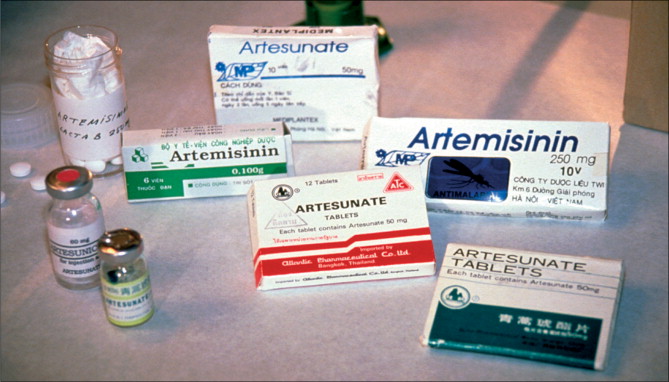An Overview of Malaria Drugs Available in Nigeria: What You Need To Know
An Overview of Malaria Drugs Available in Nigeria: What You Need To Know
Malaria is a significant public health issue in Nigeria, with an estimated 32 million cases and over 70,000 deaths in 2017. As a result, it is essential to understand the different malaria drugs available to those living in Nigeria. With a wide range of antimalarial drugs available, it can be difficult to identify which one is most suitable for a given situation. Fortunately, this article provides an overview of the different malaria drugs available in Nigeria, including the types, side effects, and cost. By understanding the key differences between the drugs, individuals can make an informed decision about which one to use. Furthermore, this article will also discuss the pros and cons of each drug and provide tips for preventing malaria. With this information, individuals will be well-equipped to make an informed decision about the best malaria drug for their needs.
Overview of Malaria in Nigeria
Malaria is caused by mosquitoes infected with parasites found in tropical and subtropical regions. It is a significant public health issue in Nigeria, with an estimated 32 million cases and over 70,000 deaths in 2017. According to the World Health Organization, Nigeria has the highest reported number of cases of malaria in the world. Malaria is transmitted through the bite of a female Anopheles mosquito. The bite introduces malaria parasites into the bloodstream, where they reproduce and infect red blood cells. Malaria can cause serious health complications, including death. Individuals at higher risk for malaria include pregnant women, children under five years old, people who work outside, and those who travel to areas with malaria. Malaria can be treated with antimalarial drugs, insecticides, or a combination of both. Antimalarial drugs kill the malaria parasites, while insecticides kill the mosquitoes. Malaria can be prevented through the use of insecticides, mosquito nets, and medication.
Types of Malaria Drugs Available in Nigeria
There are five types of antimalarial drugs available in Nigeria, including artemisinin-based combination therapies (ACTs), artemisinin monotherapies (AMTs), quinine-based combination therapies (QCTs), quinine monotherapies (QMTs), and atovaquone-proguanil combination therapies (APs).
Quinine-based combination therapies (QCTs)
QCTs are used as first-line therapy for uncomplicated malaria and for severe malaria. This drug is also used for the prophylaxis of malaria in travellers. It is recommended for adults and children over six years old. A common side effect of this drug is cinchonism, which is a toxic reaction to quinine. It can cause nausea, vomiting, tinnitus, and headache.
Quinine monotherapies (QMTs)
Used for the treatment of uncomplicated falciparum malaria, QMTs are administered as a first-line therapy in pregnant women. It is recommended for use in children over one month old and adults. Common side effects associated with this drug include nausea and vomiting, dizziness, blurred vision, ringing in the ears, headache, and tinnitus.
Artemisinin-based combination therapies (ACTs)
Used as a first-line therapy for uncomplicated malaria and severe malaria, ACTs are also recommended for the prophylaxis of malaria in travellers. They are recommended for adults and children over six years old. Side effects commonly include nausea, vomiting, abdominal pain, and dizziness.
Artemisinin monotherapies (AMTs)
Used for the treatment of uncomplicated falciparum malaria, AMTs are recommended for use in children over six months old and adults. Side effects commonly include nausea, vomiting, abdominal pain, dizziness, and ringing in the ears.
Atovaquone-proguanil combination therapies (APs)
Used as a first-line therapy for uncomplicated malaria and severe malaria, APs are also recommended for the prophylaxis of malaria in travellers. It is recommended for adults and children over six years old. Side effects commonly include nausea, vomiting, headache, abdominal pain, dizziness, and skin rashes.
Cost of Malaria Drugs
The cost of malaria drugs in Nigeria will depend on the type of drug used. However, it is important to note that many antimalarial drugs are not available in Nigeria.
Pros and Cons of Each Drug
The table below summarizes the pros and cons of each malaria drug available in Nigeria.
Tips to Prevent Malaria
The best way to prevent malaria is to avoid getting bitten by mosquitoes. To do this, individuals should take the following precautions: – Wear mosquito repellent to prevent bites – Avoid areas with a high level of mosquito activity – Cover exposed skin – Sleep under mosquito nets – Stay in well-ventilated areas – Sleep under a bed net – Use indoor insecticides – Vaccinate
Final Thoughts on Malaria Drugs in Nigeria
Malaria is a significant public health issue in Nigeria. In order to combat this issue, it is essential to understand the different types of drugs available. With a wide range of antimalarial drugs available, it can be difficult to identify which one is most suitable for a given situation. Fortunately, this article provides an overview of the different malaria drugs available in Nigeria, including the types, side effects, and cost. With this information, individuals can make an informed decision about which one to use. Furthermore, this article will also discuss the pros and cons of each drug and provide tips for preventing malaria. With this information, individuals will be well-equipped to make an informed decision about the best malaria drug for their needs.








LEAVE A COMMENT
You must be logged in to post a comment.